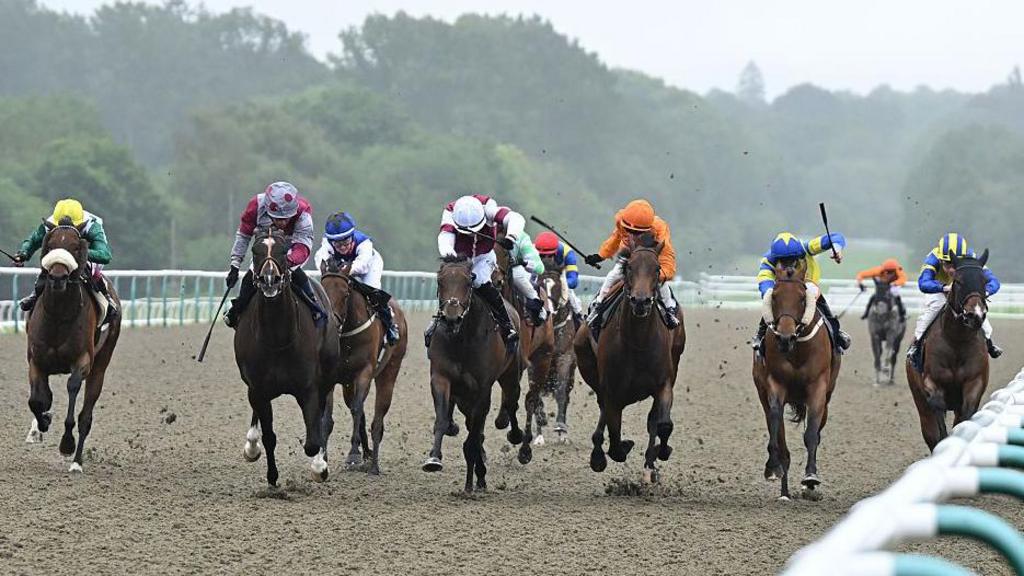Fixtures at Lingfield Park (pictured), Carlisle, Uttoxeter and Kempton Park have been rearranged
British horse racing is set to take unprecedented action on September 10, effectively going on strike by refusing to race. This decision comes as a protest against the Government’s proposed tax increase on betting within the sport.
As part of the industry-wide “Axe The Racing Tax” campaign, the British Horseracing Authority has rearranged four fixtures originally scheduled for that day at Lingfield Park, Carlisle, Uttoxeter, and Kempton Park.
This marks the first instance in the sport’s modern history where racing has been voluntarily suspended.
The governing body is actively campaigning against the Treasury’s proposal to introduce a single remote gambling tax. This would raise the tax rate paid by bookmakers on racing from 15% to align with the 21% currently levied on online gaming.
The BHA asserts that this tax change would have a “destructive impact” on the industry. Their economic analysis forecasts an estimated £330 million loss in revenue and the potential risk of 2,752 jobs within the first year alone.
A Treasury spokesperson told BBC Sport: “We are consulting on bringing the treatment of online betting in line with other forms of online gambling to cut down bureaucracy – it is not about increasing or decreasing rates, and we welcome views from all stakeholders including businesses, trade bodies, the third sector and individuals.”
Chancellor of the exchequer Rachel Reeves’s autumn budget in October is expected to bring tax rises.
Brant Dunshea, chief executive at the British Horseracing Authority, stated that the proposals “threaten the very future” of the sport.
Race meetings in Britain occur on 363 days annually, subject to cancellations due to adverse weather, equine virus outbreaks, and national crises like the Covid-19 pandemic.
The strike is scheduled for the day preceding the commencement of the four-day St Leger festival at Doncaster Racecourse.
“British Racing is already in a precarious financial position and research has shown that a tax rise on racing could be catastrophic for the sport and the thousands of jobs that rely on it in towns and communities across the country,” added Dunshea.
“This is the first time that British Racing has chosen not to race due to Government proposals. We haven’t taken this decision lightly but in doing so we are urging the Government to rethink this tax proposal to protect the future of our sport which is a cherished part of Britain’s heritage and culture.”
The rescheduled fixtures are as follows:
Lingfield Park (afternoon) – 8 September (afternoon)
Carlisle (afternoon) – 9 September (evening)
Uttoxeter (afternoon) – 11 September (evening)
Kempton Park (evening) – 15 September (evening)
Additionally, the evening fixture at Kempton Park on 15 September has been rescheduled to the evening of 18 September.
The BHA reports that the horseracing industry contributes £4.1 billion to the UK economy and supports 85,000 jobs.
“We hope the Government will take a moment to reflect on the harm this tax will cause to a sport in which our country leads in so many ways,” said Jim Mullen, CEO at The Jockey Club, which operates 15 racecourses.
“We hope this pause for reflection will enable the Government to truly understand the economic impact of horseracing and its cultural significance to communities across the UK, as well as the world-class racing festivals we host.
“After this period of reflection, we hope the full implications will be understood, and we can prevent the irreparable damage that threatens a sport the nation is, and should be, proud of.”
Latest horse racing results

